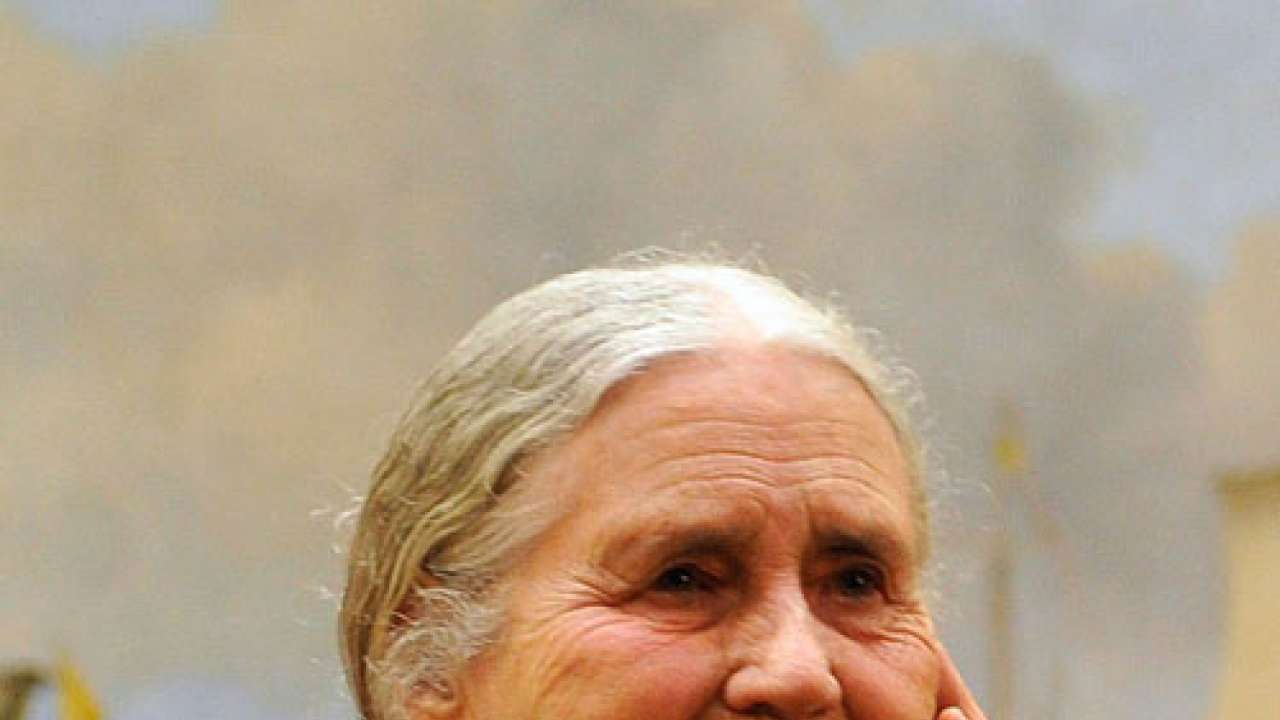
Already in the hours since the death of Doris Lessing was announced, many people will have watched a widely circulated video, filmed on her doorstep in 2007. In it, she has just been awarded the Nobel Prize for Literature, the news of which is relayed to her by reporters as she alights from a London taxi. "Oh Christ," she says in apparent irritation, and puts down her shopping bags. Watching, you think she must have heard it wrong. But no.
Pausing to check whether she has left anything behind in the cab, she turns to the camera crews and sighs. "I'm sure you'd like some uplifting remarks of some kind," she says. Bids for popularity were not Doris Lessing's thing. Of course, that made her more appealing. She was popular in ways she never meant to be. Take her best-known work, The Golden Notebook, which Margaret Drabble called "a novel of shocking power and blistering honesty". Its most striking formal aspect - the suggestion that writers are divided selves - was largely ignored in favour of its much more controversially intimate aspect. In a later preface to the book, Lessing wrote that it had been "instantly belittled as being about the sex war". Well, yes, though it wasn't belittling.
Lessing wrote about women's ambivalence with regard to motherhood and sex and work in a way that was simultaneously shocking and influential. If she rejected the feminist label, it was perhaps because she had no need for it. If others gave it to her, it was maybe because they needed her.
The Golden Notebook, which was published in 1962, was not only ahead of its time but a blueprint for women in times to come. As Lessing put it, it was written "as though the attitudes that have been created by the Women's Liberation movements already existed". Lessing was able to do a great deal for women without subscribing to feminism; she did it with her life, and with (not just within) her writing. She was, for instance, a playwright, a friend of John Osborne and part of that pivotal group who produced work at the Royal Court. (How many women can be said to have been thought of as an Angry Young Man?) She was both a single mother and an absent mother, having brought the child of one marriage with her to London, and left two children from a previous marriage in Rhodesia.
"For a long time I felt I had done a very brave thing," she said of this decision. "There is nothing more boring for an intelligent woman than to spend endless amounts of time with small children. I felt I wasn't the best person to bring them up. I would have ended up an alcoholic or a frustrated intellectual like my mother." On this, as on her engagement with Left-wing causes, Lessing was without sentimentality. In Under My Skin, the first volume of her autobiography, she wrote: "What is the use of ever saying, I should have done this, should have done that? The point was, nothing else could have happened given my nature and circumstances."
How should we read Lessing now? One question is whether her ideas about womanhood, or about psychoanalysis or the possibility of writing have dated The Golden Notebook. Writing on the 50th anniversary of its publication, Rachel Cusk, who herself had been subject to criticism for her books about motherhood and then single motherhood, suggested that Lessing's novel had become, if anything, more relevant over time.
"The modern reader may find The Golden Notebook far franker, more open, more intellectual and more politically and personally revolutionising a text than its first readers did," Cusk said. "She may find it more necessary, or even perhaps more shocking, for it makes our age seem prim and puritanical and half-witted by comparison". Perhaps her time is still to come.